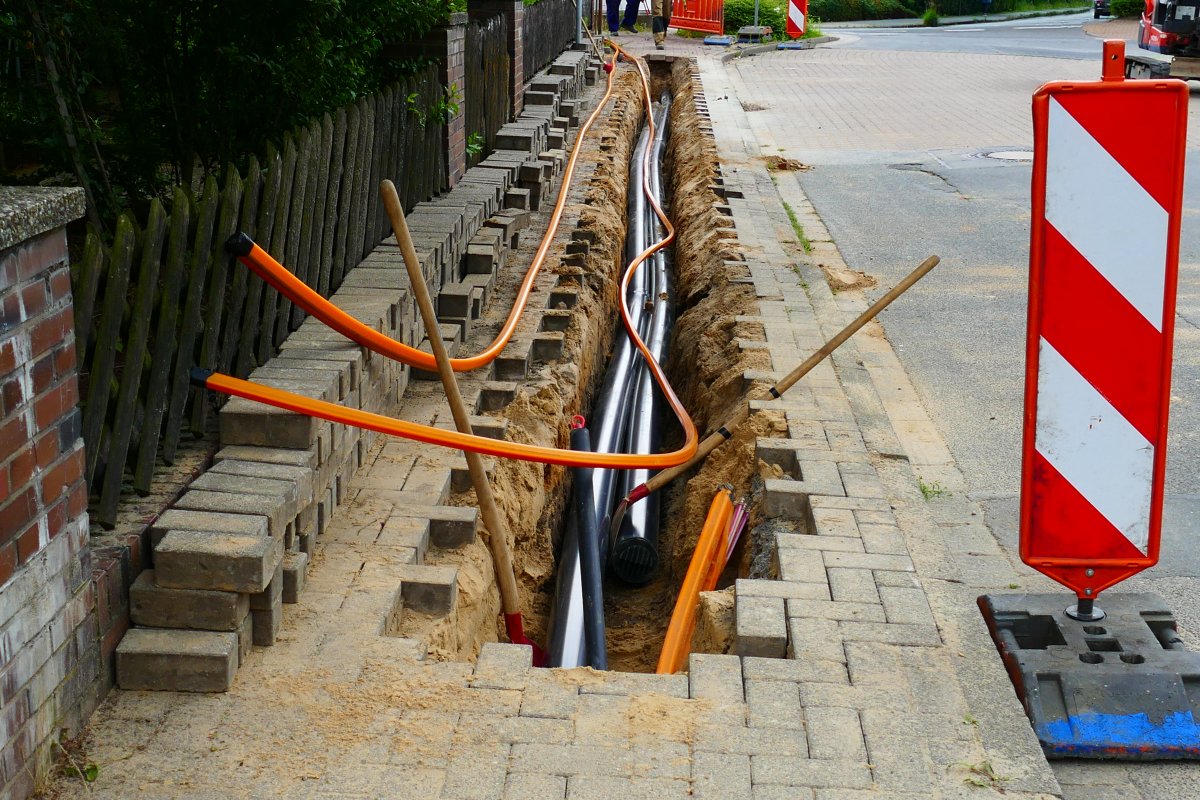Well over half of companies in Germany that are active in the industrial and industry-related services sector feel that they are affected by inadequate broadband coverage. This is shown by the recently published results of a representative survey conducted by the Future Panel of the Cologne Institute for Economic Research (IW) in the spring, in which 1079 companies took part. According to the survey, 64.5% of participants report regular disruptions to their business processes due to problems with the communication networks. For 30.7 percent, these disadvantages are even clearly noticeable.
The study shows considerable regional differences in the perceived restrictions. Companies in the regions of Saxony and Thuringia (40.3%), Hesse, Rhineland-Palatinate and Saarland (36.2%) and Baden-Württemberg (36.1%) feel most affected. The fewest complaints from businesses can be heard from the north of Germany, where only 22.7% of companies report significant problems.
These clear regional differences correlate with the expansion of fiber optics. In federal states with a high penetration rate, such as Schleswig-Holstein (92.7%), Hamburg (90.8%) and Bremen (79.7%), companies report fewer issues. Conversely, companies in regions with low expansion rates complain about problems particularly frequently. Baden-Württemberg is a striking example of this correlation, as it has one of the lowest expansion rates and at the same time one of the highest proportions of impaired companies.
Internet availability in line with demand?
Although Germany has achieved the federal government’s current broadband targets ahead of schedule. By mid-2025, the expansion rate for fiber optics was 53%, this progress is not always reflected in economic reality, according to the researchers. However, there is also a striking discrepancy with other findings. For example, a DIHK survey in 2024 revealed that 73% of companies in Germany consider their internet availability to meet their needs. The IW researchers explain this by saying that many companies do not perceive minor issues such as slow uploads or unstable video conferencing as serious and classify them as “normal” as long as their core processes work. As a result, efficiency losses often go unnoticed.
Another reason for the perceived misery is that a fiber optic connection is not automatically used, even if it is available. For cost reasons, many companies and households stick with cheaper alternatives such as VDSL and upgraded cable connections, which are often sufficient for current standard applications. Recently, only 27% of available fiber optic connections were actually activated nationwide.
Politics and industry must make efforts
Older technologies such as copper achieve quite high download speeds, but are technically limited in terms of upload speed, stability and latency. Fiber optics, on the other hand, offer symmetrical speeds, are less susceptible to interference, and are almost infinitely scalable, the authors explain. Many companies underestimate how quickly their bandwidth requirements will increase due to data-intensive applications such as cloud services, AI and digital twins. The volume of data in the German fixed network has increased almost ninefold in ten years. In the long term, only fiber optics will be able to meet the requirements of the digital transformation. In addition, optical lines are more ecologically sustainable due to their higher energy efficiency.
To strengthen Germany’s digital competitiveness, the expansion and use of fiber optics must go hand in hand, the experts argue. They recommend: The government could introduce voucher models for companies to encourage a switchover. Approval procedures for expansion should be digitalized, standardized and shortened. Transparent availability data would be helpful. Companies would have to modernize their own IT infrastructure to be able to use the booked bandwidth. They should register their requirements with network operators or local authorities at an early stage. Companies in business parks could also bundle their demand to make network expansion more economically attractive.
(vbr)
Don’t miss any news – follow us on
Facebook,
LinkedIn or
Mastodon.
This article was originally published in
It was translated with technical assistance and editorially reviewed before publication.
Dieser Link ist leider nicht mehr gültig.
Links zu verschenkten Artikeln werden ungültig,
wenn diese älter als 7 Tage sind oder zu oft aufgerufen wurden.
Sie benötigen ein heise+ Paket, um diesen Artikel zu lesen. Jetzt eine Woche unverbindlich testen – ohne Verpflichtung!

